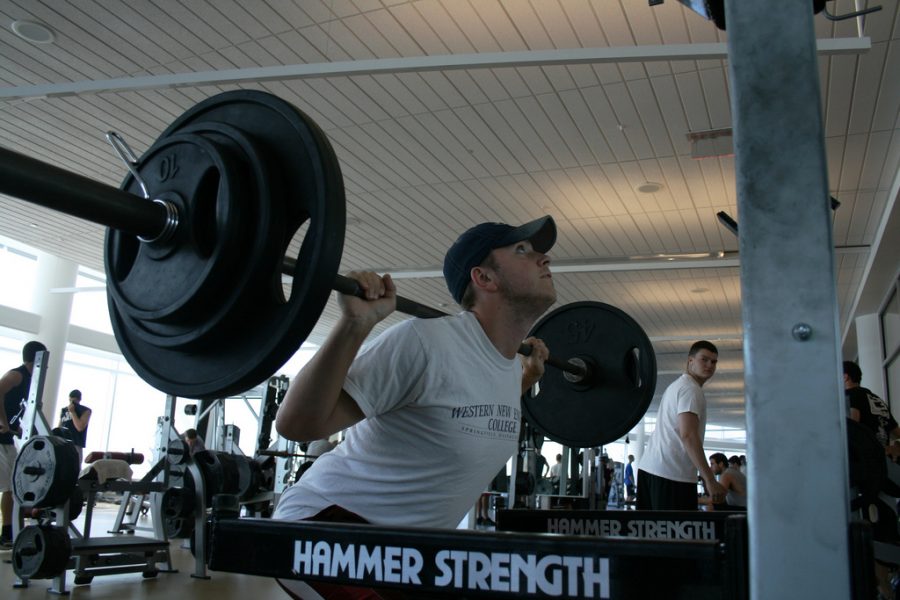The hardest part about working out is getting yourself to the gym (or wherever you’ll be doing your workout), after that it’s just about sticking to your commitment. You might as well make the most of your time, right? With a busy schedule it’s hard to make time to get to the gym, let alone make yourself go. Instead of relaxing on the couch after a hard day, take some time and go do a bit of cardio or lift some weights. A good way of keeping yourself on track is to plan ahead; writing down your schedule ahead of time helps you see where you have gaps and where you can squeeze in some physical activity. Also, you can buddy up, because making plans to go to the gym with a friend that holds you accountable will make you less likely to back out. I’m personally not a huge fan of partner workouts, so instead, I meet up with a friend at the gym, we do our own thing and meet up again afterwards. Think about what time of day you want to get a workout in; going before classes is a good idea because you get it over with and are refreshed and ready to start your day. If you’re more of an afternoon person, wear gym clothes to class and take your workout bag with you so you’re ready to go right after without wasting any time.
It will be worth it to break a sweat instead of laying on the couch. Here’s why.
Any kind of moderate or high-intensity activity is a great de-stresser; one of my favorite parts about working out is how relaxed I feel when I’m done. Physical activity increases dopamine and endorphin levels. Endorphins are responsible for making you feel good after a workout. They’re mood enhancers, or “pleasure chemicals,” similar to dopamine. You may have heard the expression “runner’s high,” and the release of endorphins in your brain is responsible for that elated feeling. We need to decompress daily, especially being busy college students. Exercise, contrary to what many believe, actually helps you relax.
Exercise aids memory and thinking too. It has the ability to reduce inflammation, reduce insulin resistance and stimulate the release of neural growth factors. Growth factors are chemicals in the brain (the sciencey acronyms for a few of these include BDNF, VEGF and 5-HT) that affect the health of brain cells and the growth of new blood vessels in the brain. They’re like a neuron first aid kit. There have been studies that suggest that parts of the brain that control thinking and memory are larger in volume in people who exercise versus people who don’t. In a study done at University of British Columbia, researchers found that regular aerobic exercise (the kind that makes you sweat) appears to boost the size of the hippocampus. The hippocampus is the area in the brain that specializes in verbal memory and learning; exercising facilitates information processing and memory functions. Hence, exercising is good not only for reducing stress and feeling good, but also for improving brain function and staying sharp, all of which are things we definitely need as students.
If you’re a busy bee and don’t seem to have the time to fit the gym into your schedule, try to mix it up with a short 25-minute jog outside or a home workout. Not all your workouts have to be long and grueling in a gym. If you can get outside on a sunny day, that’s even better. Being in nature is beneficial to your mental health; research has shown that walking in a natural area decreases activity in the region of the brain associated with a fundamental factor in depression. Other studies have also shown that time spent in nature has a positive effect on mood and aspects of cognitive function. You also get your daily dose of vitamin D just by being outside for 15 minutes a few times a week (vitamin D strengthens your immune system).
Guidelines recommend at least 150 minutes of moderate exercise (light jogging, dancing, light swimming) per week and at least 75 minutes of vigorous exercise (hiking, running, lifting weights, swimming, rowing, skiing, etc.). This means that just three 50-minute bouts of moderate exercise or three 25-minute bouts of vigorous intensity exercise is enough to see the benefits described above of better cognitive function, brain health, and relaxation. Finding a way to fit this little time into your schedule may be one of the best things you do for your health, productivity and well-being.
Victoria Adams-Forne can be reached at [email protected].




















Amy • Nov 13, 2018 at 11:42 pm
“The hardest part about working out is getting yourself to the gym (or wherever you’ll be doing your workout), ” = for lazy people.
I go to the gym 5 days a week and I like going and there are reasons I learned myself and to make the most out of exercise that I didn’t look up in a google search like this author seems to have.